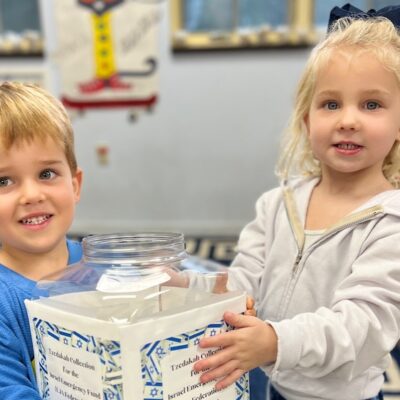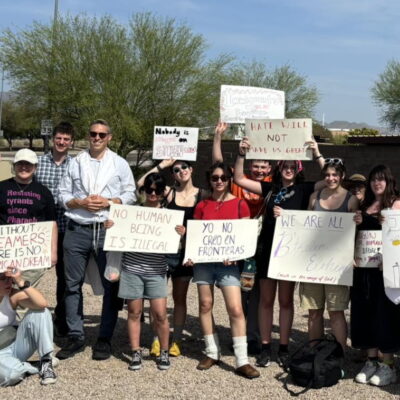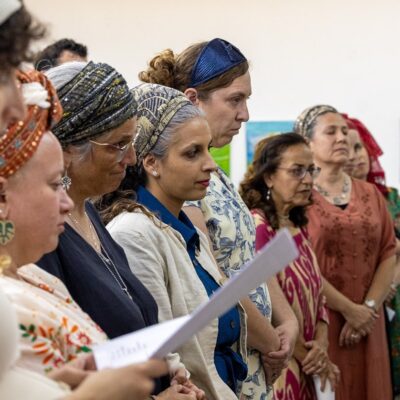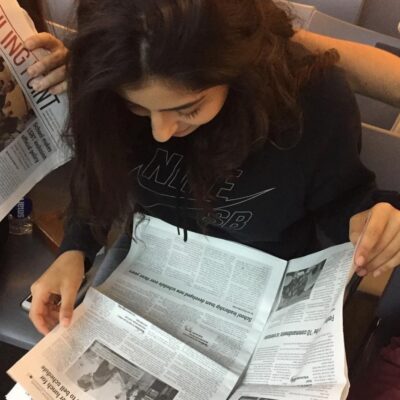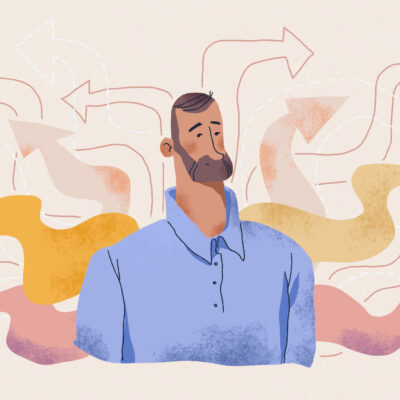Opinion
Formalizing the Informal
If experiential Jewish education can become an independent field, with uniform goals, uniform outcomes and uniform indicators, will it lose its enormous impact? Can we learn to work with pre-determined goals without losing the magic of personal self-exploration?
An introduction to four responses to the study “Mapping Goals in Experiential Jewish Education”
by Shuki Taylor
A year and a half ago, YU Center for the Jewish Future launched a study “Mapping Goals in Experiential Jewish Education”. The study asked how practitioners, working in the field of experiential Jewish education, view and communicate the goals of their work.
We learned that while often there is an extreme lack in uniformity in how organizations understand, communicate and state goals, there is indeed uniformity in what practitioners seek to accomplish, primarily in the area of personal meaning making (e.g. helping students to see Judaism as personally relevant and meaningful or helping students engage in Jewish life at their own motivation and on their own terms)
The lack of uniformity in how practitioners understand and communicate goals on the one hand, and the uniformity in the actual goals that they have stem in my mind from a conflict which is inherent to the goals of experiential Jewish education.
It is the conflict of whether the process of personal meaning making, which accounts for the success of experiential Jewish education, can in fact be boxed and packaged? Can it be – using language many of us are asked to use – logic modeled? Can we mold the process of personal meaning making?
There is a known difference between cooking and baking.
Baking is a science. Bakers need to be extremely accurate. The types of ingredients that they use, the measurements, the way they are mixed and the temperature that they require, are all specific and measured. Follow the instructions – and you will receive a perfect result.
Cooks, on the other hand, are artists at work. They intuitively know which spices to add at which point, how high to make the flame and when to turn it off. They intuitively know which foods go with which herbs, and they know what type a flow a meal should have. It just “feels” and literally tastes right to them.
Bakers use measurements that guide them to success. Cooks use their gut and their intuition.
In our study we found cooks and bakers. Bakers who have come up with a recipe, with a uniform list of ingredients and a set of instructions for how to “bake” the perfect ‘aha’ and transformative moments.
We also found artists: We know that some of the greatest successes of experiential Jewish educators stem from their charisma and creativity; their gut and their intuition; the magic that they create; the aha moments that they produce. They can’t explain exactly how it works, but they implicitly know that it does.
Here then is the challenge of experiential Jewish education – an approach that seeks to create personal meaning: Can it be turned into something formulaic? If it can, should it? And if it does – is there a price to be paid?
With these big questions in mind, we turned to four distinguished academics from a variety of disciplines and asked them to respond to our study. We asked them to tell us how they understand the findings; what we should be looking for next, and if there is room for more research – what should it be.
Over the next four weeks, eJewishPhilathropy.com will publish these responses, which, in order of publication, include responses from Dr. Amy Sales, Associate Director of the Cohen Center for Modern Jewish Studies at Brandeis University; Dr. David Pelcovitz, Straus Chair in Psychology and Education at Yeshiva University’s Azrieli Graduate School of Jewish Education; Dr. Carmen Hendricks, Dean of Yeshiva University School of Social Work; and Dr. David Bryfman, Chief Learning Officer at the Jewish Education Project.
The final study will be published along with these responses, and it is our hope that collectively these pieces will provide the YU Certificate Program in Experiential Jewish Education, and the field at large, with a road map for the future of EJE.
Shuki Taylor is Director of Experiential Jewish Education at Yeshiva University’s Center for the Jewish Future.
The deadline for applications for Cohort IV of the YU Certificate Program in Experiential Jewish Education is February 17, 2014.



